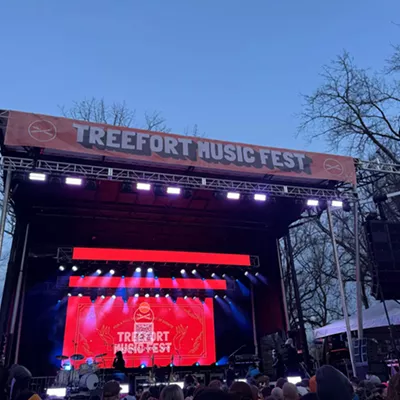Isolation can be a tricky creative ingredient for musicians. At times it can make artists feel totally unheard, like there's no way their voice can escape their hometown. But isolation can also foster creative freedom — an opportunity to experiment without fear of a wider world scoffing. Seattle's remoteness is often cited as a factor in the grunge boom, for example. But the Emerald City's music scene has nothing on the isolation of musicians on the Hawaiian islands, where rich cultural ties run much deeper and the isles' signature laid-back musical styling is instantly recognizable.
For Hawaiian music legends Keola Beamer and Henry Kapono, that island sound courses through their veins. Before becoming a joint touring act, both artists came up during a Hawaiian music boom period in the 1970s. Beamer — a master of the distinctly Hawaiian slack-key guitar style (fingerpicking with "loose" tuning) — became a star playing with his brother. The Beamers' 1979 album Honolulu City Lights remains the best-selling Hawaiian music album of all time. Kapono has always been more of the rock 'n' roller, gaining fame as part of the duo Cecilio & Kapono, before successfully carving out a career as a solo act.
"I think we're both fortunate to [come up] in a time — they call it the Hawaiian Renaissance — where a lot of groups in Hawaii were starting to write their own songs and [get] recognized," Kapono says. "And everybody had their own identity, so you could go anywhere and watch another artist, and it was a totally different sound, totally different music. That authenticity. We all had our own style, our own voice, our own style of writing, and the music always spoke about the islands and this place that we love. I think that has carried us through to here, to now. We're real fortunate to be able to play these songs for what... 100 years now? [Keola laughs] And people still love it, and we still love it. It's just part of our soul."
But even when things were booming locally, it still took awhile for the continental stateside audience to catch on. When the sounds finally crossed the Pacific, the authenticity of the cultural sound that had been percolating for decades (if not centuries, depending on how you want to trace it) rang true.
"I can remember years back the whole idea of slack-key or island music crossing over the Pacific to the continent was almost unattainable. Because we were so insulated and isolated geographically," Beamer says. "And over the years, the records went national, and the distribution went national, so we were able to sort of transcend our initial environments. But I think a lot of surviving artists like ourselves, you know, sometimes called legacy artists, we have an authenticity. And that authenticity is what kept us alive all these years."
"You can't pretend [that] stuff," Beamer continues. "It has to come from the heart. You have to play with aloha in your heart."
Despite being peers for 40-plus years, the two artists didn't begin playing together until 2014, when Kapono invited Beamer to join him for a show at Honolulu's famed Waikiki Shell. They hit it off immediately and have been doing collaborative tours ever since.
"I think [playing together] brings out a whole other element of musicality that we have. We're both so different in our styles, and I think it just creates a whole other music form together," says Kapono.
"I always just admire Henry's musical courage," adds Beamer. "Like when we first began rehearsing, there would be a part that would be kind of too high for me, and I'd think, 'Oh man, it's going to be tough to get up there.' And Henry has the courage to do it, get up there and make it shine. And I look at him and go, 'Man, you've still got it going on!' [both laugh]"
So what makes such a distinctive culturally specific sound resonate with listeners far from the majesty of the Hawaiian coasts?
"There's kind of an openness to [our music], it makes room for the listener," Beamer says. "Somehow the space between the notes or the phrasing is inclusive, it brings people toward you."
"It's like another language, you know," Kapono adds, "and I think people become very raptured in it because it just sounds so different, but it feels so good."
For now, they're just happy they get to get back on the road and continue to spread that audio aloha.
"The pandemic has created all kinds of difficulties in our world of music and performance. So we really have sort of refocused on how precious these moments are, where we have an audience," says Beamer. "I don't think we ever took it for granted, but it's especially in focus at this time in our lives. It's kind of the sunset of both of our lives, so it really has an element of sweetness and aloha to it. And we're so grateful to be able to come out and share it." ♦
Keola Beamer & Henry Kapono • Fri, Jan. 28 at 8 pm • $27-$52 • All ages • Bing Crosby Theater • 901 W. Sprague Ave. • bingcrosbytheater.com • 509-227-7638

























